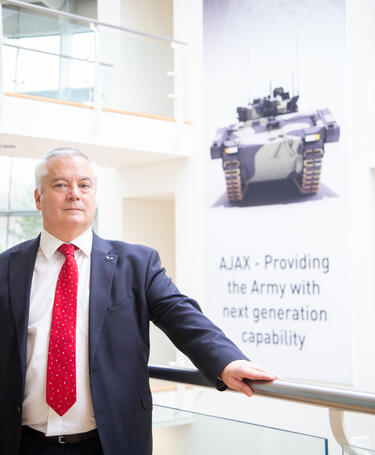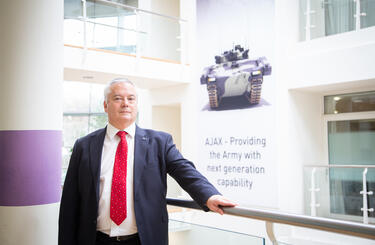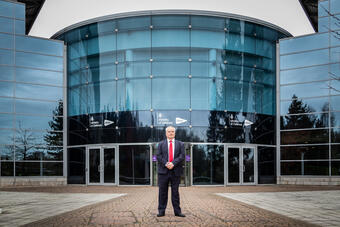
5 minutes with… Andrew Clark
Progress indicator

Andrew Clark, MBA CQP MCQI, QSEP CST Assistant Head for the UK Ministry of Defence, talks to Alicia Dimas about his career and how quality plays a crucial role in the defence sector
With the mass production of armaments, it became necessary to introduce a form of quality control and technical inspection. Suppliers started to document their process and procedures, particularly for the manufacture of explosives. Now it is the Ministry of Defence’s policy that its suppliers and manufacturers have appropriate certification.
The Defence Industries Quality Forum (DIQF) is the forum within the defence sector to facilitate consultation between the Ministry of Defence and the defence industry on quality policies, standards and processes. It provides an environment where the Ministry of Defence and the defence industry can develop solutions to mutual problems in the quality arena.
The Ministry of Defence continues to hold close working ties with the CQI, through the Defence Industries Quality Forum and regular face to face meetings. The Ministry of Defence supported the development of the GAI approach (Governance, Assurance and Improvement), which it has since adopted as its operating strategy, alongside many of its industrial partners. The role of the CQI, as the professional body for quality, is fully recognised by DIQF and they work collaboratively to support the achievement of each organisation’s objectives.
The move towards quality management systems was largely driven by the defence sector. It is worth noting that the forerunner to ISO 9001 - BS5750 was a direct copy of Defence Standard 05-21. We continue to push boundaries in quality, for example, the latest version of AQAP 2110, which builds on ISO 9001, has explicit requirements for supply chain management, due to the complex enterprises that are formed to develop and deliver defence capability.
The CQI is leadership in the quality arena, a good source of research material, support and guidance for personnel development, through its Continuous Professional Development Programme. The CQI plays an important part in working with quality professionals for professional recognition. It also helps the Ministry of Defence maintain and develop links across its industrial partner base and provides insight into developing practices that the Ministry of Defence can draw upon to develop its future strategies and plans.
I am deployed as a Quality Management expert and my role is primarily to develop the quality management system being used by the QA Field Force team, and to integrate this with other service delivery providers in the directorate. This includes the Quality and Configuration Management Policy team and the Safety & Environmental Protection team, who looks after acquisition, product safety and supplier audits. I map the CQI Competency Framework into the competencies I need to develop to meet the aims and objectives of the organisation. I look at what do, what I need to achieve, how am I going to achieve it, what have I learnt from the experience and how to share that knowledge, to develop the team and the organisation.
We could see a rise in the usage of robotics, mechatronics and military drones in the future. In theory we could even see an interplanetary Defence Agency, a NATO Space Agency protecting quadrants of space. The challenge for quality professionals of the future will be how to offer their skills, so that they are acknowledged and used. Quality professionals with their unique improvement skills are the ones who can facilitate this incessant development.

Quality World

Get the latest news, interviews and features on quality in our industry leading magazine.
Search the eLibrary
The eLibrary has thousands of articles, journals, reports and magazines.


